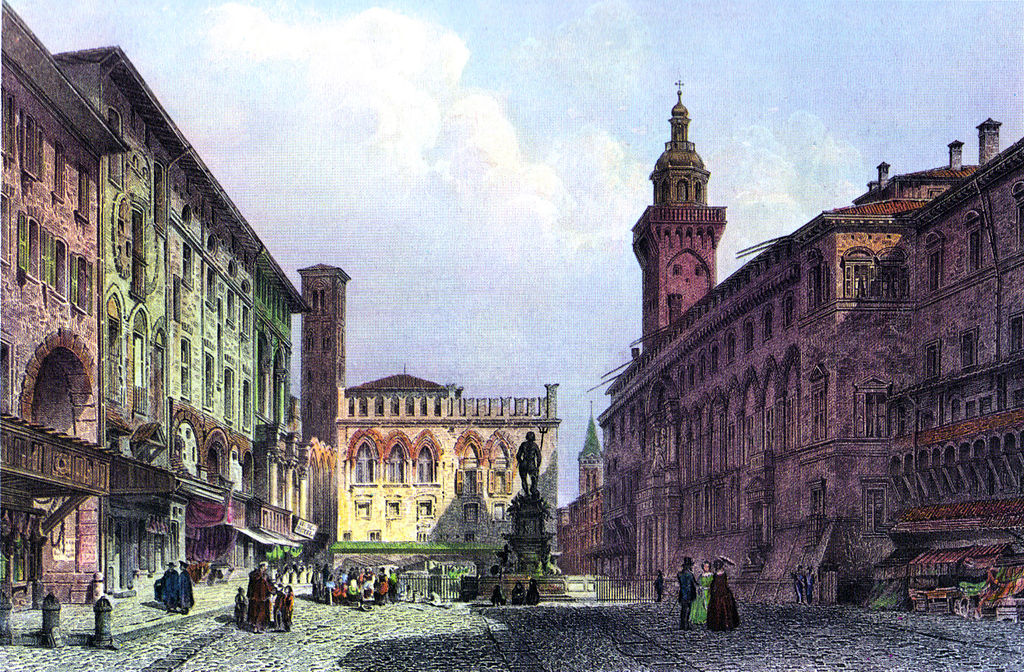Overall Score
It can hardly be an exaggeration that Bologna, in northern Italy, is one of the oldest and most famous cultural centers of Europe. The history of Bologna goes back to the 6th century, when the Albanians founded a small village called Fellowship on a hill around a shrine. In the 4th century, the city was called Bologna (only later called Bologna), and two centuries later it became part of the Roman Empire.
The village developed rapidly as a Roman colony &cash; by the beginning of our era it was home to about 10,000 people. In about the 11th century, the city lived a moderate life, and it expanded very gradually. During this time, Bologna managed to be both the Greek Archdiocese and the Roman Empire, and in the 8th century it gained the status of a free city.
1088 was a landmark year for Bologna as well as Europe; it was the year the first European university was built here, and its students included Dante, Peter Frank and Copernicus. The opening of such an important educational institution contributed to the prosperity of the city, which was now the center of the palaeomony of the European integration of the period.
The citys wealth, however, also played a cruel trick on him: For centuries, various European nations had fought over the right to claim Bologna. Before the city was formally and finally annexed to the Kingdom of Italy in 1860, it had been part of the Kingdom of Austria and France. Even in the early 20th century, Bologna retained its early 20th-century color, but urbanization has led to the destruction of the citys crenellated walls with towers and fortresses, and some historic monuments.
On the other hand, this does not mean that there are no attractions in Bologna. In terms of the number of monuments of culture, Bologna is said to be second only to Benin and ahead of all other European cities. The center of Bologna is Piazza Maggiore (main square) with 4 ancient palaces (12-14 centuries). It is worth mentioning the number of cathedrals and churches, the oldest of which allow visitors to see monuments and icons of early Christianity. Each cathedral actually has a museum in its vicinity, giving a closer look at the peculiarities of archaeological history. The city is also home to one of Italys most important theatres, the Teatro Comunale di Bologna. The city, in addition to its cultural and historic heritage, can also offer its visitors an ancient specialty cuisine, so that its status as a culinary capital of Italy is also justified.
Overall Score
- Air quality: 53 US AQI Moderate. Air quality is acceptable. However, there may be a risk for some people, particularly those who are unusually sensitive to air pollution.
- Tap water: Yes, safe to drink
- Religious government: Non-religious
- Population: 390,000 people
- GDP: $31,279 / year
- Foreigners can own real estate: Yes
- Power outlets: 230V50Hz

- Internet: 17 Mbps
- Best wireless: Wind
- Pay without cash: No, cash only esp. for foreigners
- Tipping: You are not expected to tip restaurants in Italy. A service charge is sometimes added to the bill, ranging from 1 to 3 Euros, or 10% – 15%. This charge must be indicated on the menu. Some may also add an extra charge for the diner ware and extras (tablecloth, silverware, plates, bread, etc.), this is normal.
- Apartment listings: Immobiliare
- Apartments: Airbnb
- Hotels: Booking.com
- More hotels: Hotels.com
- Best taxi: MyTaxi
- Best coworking space: Kilowatt
- Online electronics shop: Amazon
- Best short-haul air carrier: Alitalia
- Best intl air carrier: Alitalia
- Monthly costs for expat: $1500
- Monthly costs for family: $3200
- Monthly costs for local: $900
- Meal: $6
- Small Cola: $1
- Beer 1 Pint: $3
- Coffee: $2
View Larger Map

